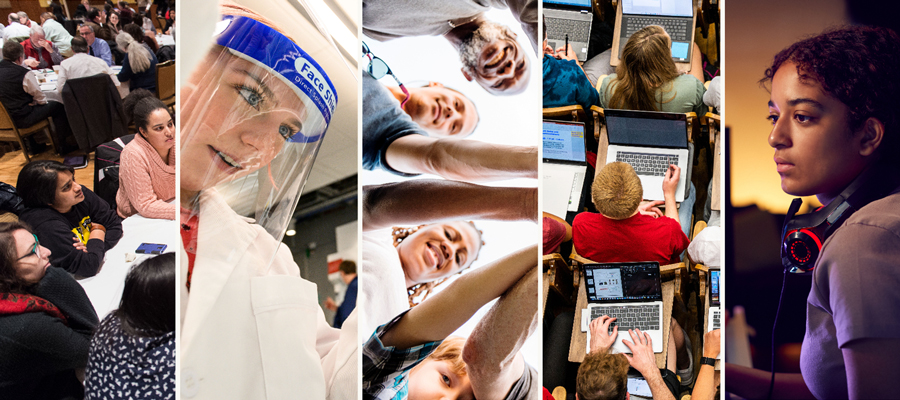A message from Lois Brooks, vice provost for information technology and chief information officer:
With the new year’s potential and the fresh start of a new semester ahead of us, it’s a good time to think about setting goals.
Perhaps you would like to make a change to something related to your health. Maybe you’re looking to rekindle friendships that have languished. Or perhaps you plan to get out of your comfort zone and take on a new challenge.
I’ve got a few things in mind for myself. Whatever your personal plans might be, I encourage you to also take a few moments to think about what we might do for UW’s information technology community.
As I reflect on the university’s IT accomplishments in 2022 and look forward to our priorities for 2023, what clearly stands out to me are the initiatives, projects and tasks we have accomplished by working together. Over the past few years through our combined efforts, we’ve endured a pandemic and kept the university’s mission of education, research and outreach at the forefront.
But of all our truly notable accomplishments, one that I’m most proud of is the way our IT community comes together to focus on the important work of the university.
Sometimes that has meant collaborating across the university to bolster our research computing infrastructure, enabling UW researchers to push the bounds of science. Another example is our collaborative work surrounding the Administrative Transformation Program, partnering with stakeholders to determine a transition path forward for nearly 1,000 “ancillary” administrative systems in use at UW–Madison.
The common thread in everything we do, and everything we build? People. We strive to put this all-important human connection at the forefront of our work and our daily interactions.
That’s why it’s so rewarding to see the communities of practice and affinity groups we’ve built together grow and thrive. UW IT Connects sponsors a wide variety of opportunities for IT professionals to plug in, work together and get to know one another. One example is the UW Design Community, which brings people together across campus to learn about everything from inclusive photography to search engine optimization—with a shared goal to make our digital campus more welcoming and easier to use for both students and employees alike.
Other thriving groups include the UW Event Producers Group (one of several IT-related Communities of Practice), UW Women in IT and many more. Two recently formed groups are also moving the needle in the right direction: the Information Technology Collaborative Coordination Committee (ITCCC) and the Advisory Committee on Research Computing (ACORC). Through sharing ideas, giving feedback and discussing opportunities and challenges together, these gatherings are proving to be invaluable.
Our IT community has also come together to plan and host conferences to build connections and jump start our collective imaginations—including the IT Professionals Conference and its 2022 keynote focused on using our voice to create inclusive, accessible technology designs and services.
Though collaboration has become somewhat of a buzzword, its benefits cannot be overstated. When we pull together to do our work, we become more engaged, our accomplishments multiply and we can be more successful.
We know what collaboration can do:
- Improve trust and communication
- Lead to better problem-solving
- Build stronger relationships
- Improve effectiveness and efficiency in our work
For me, some of the most satisfying moments at work are the ones spent in deep collaboration with others, hearing ideas, solving problems and making things happen. My favorite moments of the last year always included colleagues; and I look forward to creating the best moments of 2023 with many of you.
This year, let’s keep all this momentum going and commit to enhancing our collaborations and work relationships. I’m certain that our IT community, the university as a whole and each of us as individuals will reap the benefits.
Best,
Lois
